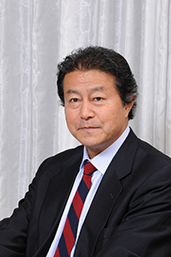The Japan Council for Quality Health Care (JQ) was established on 27th July 1995 to conduct third-party evaluations of health care institutions, and with the aim of supporting such institutions in their quest to provide high-quality health care.
While it goes without saying that those who receive medical care wish for every citizen to comfortably enjoy appropriate and high-quality services, we must stress that this wish is also shared by health care providers. And when it comes to building unwavering trust in public health care, the issue of continuous improvements to health care takes on the utmost importance.
Effective provision of high-quality health care firstly requires considerable efforts from health care institutions themselves. However, in order for those efforts to be expended efficiently, these institutions must make use of third-party evaluations in order to pursue further continuous improvements. JQ’s own Hospital Accreditation has become a useful tool for delivering quality improvements in hospital care, and is being effectively used by a large number of hospitals.
And it’s not only our Hospital Accreditation that has made an impact. Through other diverse projects related to The Japan Obstetric Compensation System for Cerebral Palsy, EBM and Guidelines (Minds), National Database of Medical Adverse Events , National Database of Near-miss Events in Pharmacy, and Patient Safety Promotion, JQ can be said to have positively contributed to Japan’s “health care quality improvements” and “health care safety” in several ways.
These various projects have been set up to embody the five “core values” of JQ: building trust with all related parties as an academically-specialized, neutral third-party institution; dealing with all matters in an unbiased, fair manner; ensuring transparency and accountability to society; bringing together our collective strength from a scientific and professional perspective; and continually striving for higher standards.
The “desired attitudes” practiced at the highest level of health care form a type of ideal. An evaluation body aiming for such an ideal likely faces a long road ahead in order to reach it. However, JQ is willing to walk that road. Our management are united in the pursuit of health care ideals, and making tremendous efforts to reach them, all the while strengthening Japan’s connections with the wider world. We hope that you will continue to support us evermore generously as we strive to reach our goals.

Chair,
Hirobumi Kawakita

